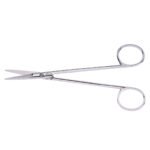Fertility issues are a growing concern for many women around the world. Female fertility is a complex system that can be influenced by a wide range of factors, from hormonal imbalances to lifestyle choices. The journey to motherhood may not always be smooth, and for some, fertility problems in females can create unexpected hurdles. Understanding the causes of these issues and seeking early diagnosis and treatment can significantly improve the chances of conception. This blog will explore the various causes of female infertility, the steps involved in diagnosis, and the available treatment options.
Common Causes of Fertility Problems in Females
Female fertility is highly dependent on several key factors, including the health of the reproductive organs, hormonal balance, and age. Here are some of the most common causes of fertility problems in females:
Ovulation Disorders:
Ovulation is the process in which an egg is released from the ovaries, making it available for fertilization. Ovulation disorders, such as polycystic ovary syndrome (PCOS) and premature ovarian insufficiency (POI), can prevent regular ovulation or stop it altogether. PCOS, a hormonal disorder that affects the ovaries, is one of the leading causes of infertility in women, while POI results in diminished ovarian function before the age of 40.
Endometriosis:
This condition occurs when tissue similar to the lining inside the uterus begins to grow outside the uterus. Endometriosis can cause painful periods, scarring, and inflammation, which may interfere with fertility by blocking the fallopian tubes or affecting egg quality.
Blocked Fallopian Tubes:
The fallopian tubes play a crucial role in female fertility by transporting the egg from the ovaries to the uterus. If the fallopian tubes are blocked or damaged, it can prevent the egg and sperm from meeting. Blockages are often caused by conditions such as pelvic inflammatory disease (PID), previous surgeries, or endometriosis.
Uterine Abnormalities:
Structural problems within the uterus, such as fibroids, polyps, or a misshaped uterus, can affect fertility by disrupting implantation or causing recurrent miscarriages. Fibroids are benign growths that develop in or around the uterus and can impact fertility depending on their size and location.
Age:
Female fertility declines with age, especially after the age of 35. As women age, the number and quality of eggs decrease, which can lead to difficulties in conceiving. Advanced maternal age is also associated with a higher risk of miscarriage and chromosomal abnormalities.
Hormonal Imbalances:
Hormones regulate the menstrual cycle and ovulation. Imbalances in hormones such as luteinizing hormone (LH), follicle-stimulating hormone (FSH), and thyroid hormones can disrupt these processes, leading to fertility problems in females. Conditions like hyperthyroidism or hypothyroidism can negatively impact fertility by affecting ovulation and menstrual regularity.
Lifestyle Factors:
Certain lifestyle choices can have a significant impact on female fertility. Smoking, excessive alcohol consumption, poor diet, stress, and being overweight or underweight can all contribute to fertility problems in females. These factors can affect hormone levels, ovulation, and overall reproductive health.
Diagnosing Fertility Problems in Females
If a woman is unable to conceive after a year of trying (or six months if over the age of 35), it is important to seek medical advice. A thorough fertility evaluation is essential to identify the root cause of the problem and develop a tailored treatment plan.
The diagnosis of fertility problems in females typically involves a series of tests and examinations, including:
Medical History and Physical Exam:
The doctor will begin by taking a detailed medical history, including information about menstrual cycles, past pregnancies, surgeries, and any known medical conditions. A physical examination will also be conducted to assess overall health and reproductive anatomy.
Ovulation Testing:
To determine if a woman is ovulating regularly, the doctor may recommend ovulation testing. This can involve blood tests to check hormone levels, as well as tracking basal body temperature or using ovulation predictor kits.
Ultrasound:
An ultrasound is used to create images of the reproductive organs, such as the ovaries, uterus, and fallopian tubes. It can help detect conditions like fibroids, polyps, ovarian cysts, or blocked fallopian tubes that may be contributing to infertility.
Hysterosalpingography (HSG):
This specialized X-ray procedure is used to assess the fallopian tubes and uterine cavity. A contrast dye is injected into the uterus, and X-rays are taken to see if the dye flows freely through the fallopian tubes or if there are blockages.
Hormone Testing:
Hormonal imbalances are a common cause of fertility problems in females. Blood tests are used to measure levels of reproductive hormones, such as LH, FSH, estrogen, progesterone, and thyroid hormones. These tests can help identify conditions like PCOS or thyroid disorders that may be affecting fertility.
Laparoscopy:
In some cases, a laparoscopy may be necessary to diagnose conditions like endometriosis or pelvic adhesions. This minimally invasive surgical procedure allows the doctor to examine the pelvic organs through a small incision in the abdomen.
Treatment Options for Fertility Problems in Females
Once the underlying cause of infertility has been identified, the next step is to explore treatment options. The treatment plan will depend on the specific issue and the woman’s overall health. Here are some of the common treatments for fertility problems in females:
Medications:
Ovulation-inducing medications, such as Clomid or letrozole, are often prescribed to women with ovulation disorders. These medications help stimulate the ovaries to produce and release eggs. In cases of hormonal imbalances, hormone replacement therapy or thyroid medications may be used to regulate hormone levels and improve fertility.
Surgery:
Surgical interventions may be necessary for women with structural abnormalities in the reproductive organs. For example, laparoscopic surgery can be used to remove fibroids, polyps, or endometrial tissue, while surgery may also be used to repair blocked fallopian tubes.
Intrauterine Insemination (IUI):
IUI is a fertility treatment that involves placing sperm directly into the uterus at the time of ovulation. This procedure can be beneficial for women with cervical issues or mild ovulation problems.
In Vitro Fertilization (IVF):
IVF is one of the most effective treatments for fertility problems in females. It involves retrieving eggs from the ovaries, fertilizing them with sperm in a laboratory, and then implanting the resulting embryo into the uterus. IVF is often recommended for women with blocked fallopian tubes, severe endometriosis, or unexplained infertility.
Lifestyle Changes:
For women facing fertility problems, making positive lifestyle changes can make a significant difference. This may include adopting a healthy diet, exercising regularly, reducing stress, quitting smoking, and limiting alcohol intake.
Assisted Reproductive Technologies (ART):
In addition to IVF, other ART methods, such as intracytoplasmic sperm injection (ICSI) or donor eggs, may be used in certain cases. These advanced techniques offer hope to women who have not been successful with other treatments.
Conclusion
Fertility problems in females can be complex and challenging, but with the right diagnosis and treatment, many women are able to achieve their dream of motherhood. It is essential to seek medical advice early and work with a fertility specialist who can guide you through the process. Whether the issue is related to ovulation, structural abnormalities, or hormonal imbalances, there are effective treatments available to address the underlying causes of infertility.
By taking proactive steps to understand and address fertility problems in females, women can improve their chances of conceiving and building the family they desire. If you are facing fertility challenges, remember that you are not alone, and help is available to guide you on your journey to parenthood.
Disclaimer:
The information contained in this blog is for informational purposes only and does not constitute medical advice. The information is not intended to be a substitute for professional medical advice, diagnosis, or treatment. Always seek the advice of your physician or other qualified healthcare provider with any questions you may have regarding a medical condition or treatment. Never disregard professional medical advice or delay in seeking it because of something you have read on this blog.



















































